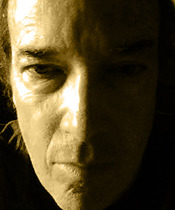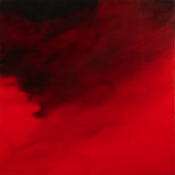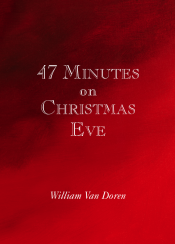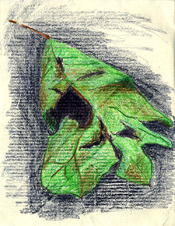 William Theodore Van Doren. Stony Point, Albemarle County, Va. Oil on paper, 16 x 20.
William Theodore Van Doren. Stony Point, Albemarle County, Va. Oil on paper, 16 x 20.
I’m happy the sun came back out for my brother Steve’s 60th birthday.
Rain, earth, sun. That’s more or less the theme from a long walk today, although those three elemental words immediately distracted me by making me think of writing about D.H. Lawrence. Another time. D.H. did loop back around to my brother, whose middle name is Lawrence, but I guarantee Steve wasn’t named for any author.
My college roommate recently wrote, “I was raised to consider myself part of an intellectual elite.” That just goes to show what an interesting culture gap we had to deal with in our early days at Hopkins. Steve and I et al. were raised to consider ourselves ... I have no idea!
Steve’s name was inspired by Steve Van Buren (Stephen W.), a pro football hero whose greatest fame came with the NFL championship games of 1948 and 1949. I don’t think Steve has ever given much consideration to the curious fact that he was named after a running back for the Philadelphia Eagles, of all things – not exactly a well-loved franchise in our experience.
Anyway, even though the Van Doren family, at least, had, in previous generations, a pretty strong tradition of preserving and passing names around, I suspect my parents were part of a (possible?) postwar trend toward naming your kid any damn thing you wanted. I’m the only one who got someone’s name – my grandfather’s – which was his grandfather’s, so break out the roman numerals. I think the story we always heard was that ‘Stephen Lawrence Van Doren’ sounded good.
Sounds very good to me.
Rain, earth, sun. But look, before I get there, I have to ask. My wonderful, many-marvel’d spouse, who is hardly ever wrong – as a consequence of which I now owe her exactly $8700 from all the bets I’ve lost with her – thinks that posts like this one – you know, the ones where it sounds like maybe I got only three hours of sleep and then walked seven miles, so that I go off on the slightest tangent through a lack of inhibitory frontal cortex function – anyway, that people might not like such long posts. What do you think? If you disagree with Laura I will be especially interested in hearing from you. There’s no money involved, unfortunately.
At the first stream we (Flint the foxhound and I) crossed today, I was struck by the effects of yesterday’s storms. The stream banks, where they’re normally a smooth, almost shiny sandy clay, had been beaten down into a flat, matte, finely stippled surface much like the beach after a long steady rain. The water of such a small stream, only yards from the source, is usually quick to rise and just as quick to fall, leaving a clear low current just as before – but today, 12 hours after the rain had ended, the water was still somewhat up and, I was surprised to see, slightly turgid. Dead leaves were pasted to the ground, the trunks of beeches, hollies and poplars looked scrubbed and a clearing sky seemed reflected in the field.
The rain, in short, had washed the face of the earth. (And even though hundreds if not thousands must have written this before, it feels so accurate to my impression I don’t care.)
Thanks to the wash, we could see along the jeep trail that no hunters had come in today. This meant a lot less uncertainty about what was out there in the 1000+ acres, and less likelihood of “Cold Mountain moments.” That’s what I call creepy, spooky feelings like those the reader gets when Inman is up in the isolated deep mountains and you don’t know if the Home Guard is about to find him. In my case, they can come from not knowing where hunters are or not knowing what Flint may be barking at or chasing, off in the distance.
As for Charles Frazier’s intensely wrought creation – I don’t mean to quibble – it’s not every book that earns a place in one’s vocabulary – but I wouldn’t have minded holding it open to the rain and washing out just a little of the melodrama. In a sense I wanted fewer Cold Mountain moments in Cold Mountain. But that’s me. I’m also crazy enough to wonder, quite seriously, if entire novels might be constructed from rain, earth, sun.
 Saturday, March 12, 2011 at 11:58AM | by
Saturday, March 12, 2011 at 11:58AM | by  BVD | tagged
BVD | tagged  Baltimore,
Baltimore,  Johns Hopkins University,
Johns Hopkins University,  painting process | |
painting process | |  Post a Comment
Post a Comment 






